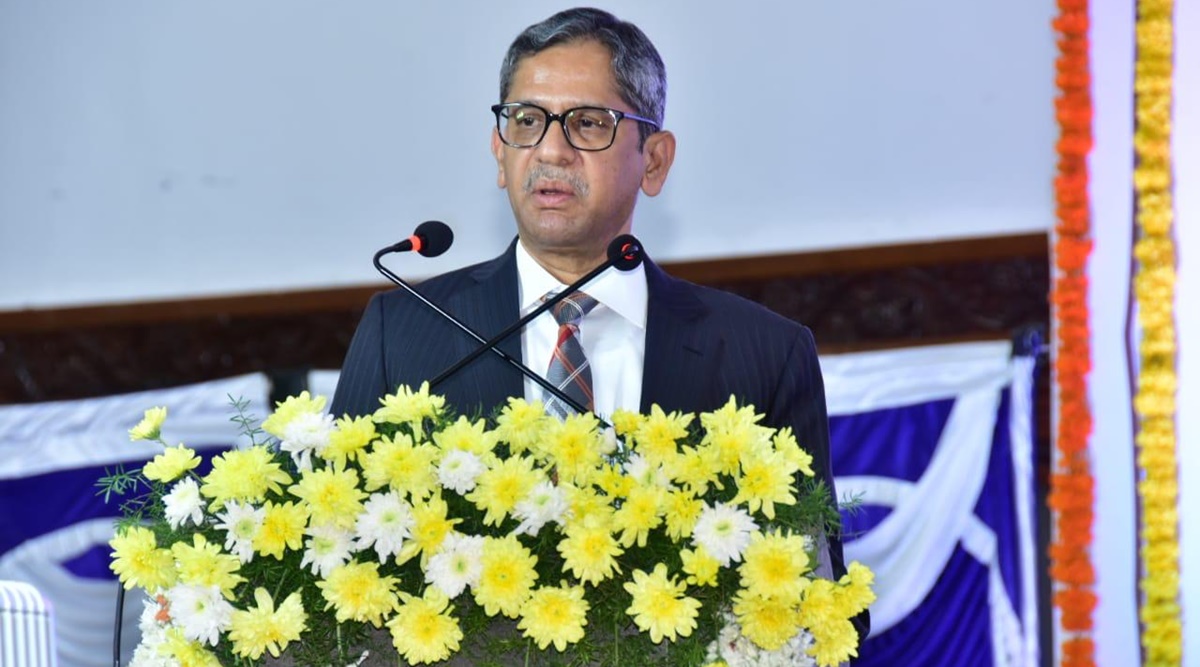 Chief Justice of India N V Ramana (File)
Chief Justice of India N V Ramana (File) CHIEF JUSTICE of India N V Ramana Saturday said that he keeps getting queries whenever he travels abroad about how investor-friendly India’s judicial system is and that his answer always has been that it “is absolutely independent and it always treats all the parties equally and equitably”.
He was addressing the ‘National Seminar on Adjudication of IPR (Intellectual Property Rights) Disputes in India’ at the DRDO Auditorium here.
On the judicial setup to deal with IPR issues, the CJI said it is necessary to strengthen the High Courts to deal with these cases. “Not only do we need to fill the existing vacancies on an urgent basis, but there is also a need to increase the number of judges,” he emphasised.
He also underlined the need for improvement in judicial infrastructure and expressed his disillusionment on the matter despite his efforts to get things moving.
“I have been pursuing the government for setting up statutory authorities, both at the centre and at the states. But unfortunately…,” the CJI said.
He said that India’s position as the global pharma hub today is largely attributable to the existing IPR regime.
“Several pharmaceutical multinational companies have been contracting research & development (R&D) to national laboratories in India. This has enabled a massive growth of pharmaceutical exports by India, with local firms building capabilities in making affordable generic life-saving products,” the CJI said.
“Today, India has rightfully earned the title of ‘pharmacy of the world’,” he said.
The CJI also recalled the SC’s landmark 2013 ruling (Novartis vs. Union of India) and said the decision “stopped the practice of the pharma industry to extend the patent period by simply tweaking some constituent elements. This helped the common man by ensuring that lifesaving drugs are available at an affordable cost”.
Speaking on the impact of IPR on agriculture, he said that “in modern times, private companies have entered this arena in developing new varieties and high-yielding plants”. He added that “these companies expect a certain level of protection for the variants of plants they develop” and that “in order to strike a balance, India enacted the ‘Protection of Plant Varieties and Farmers’ Rights Act 2001’.”
The CJI also underlined the need for the country to do more in the area of Geographical Indications.
“India has approximately 400 registered geographical indications. However, certain states are performing well, others are yet to catch up. There is an immediate need to take corrective steps to achieve the full potential of geographical indications,” he said.
- The Indian Express website has been rated GREEN for its credibility and trustworthiness by Newsguard, a global service that rates news sources for their journalistic standards.

